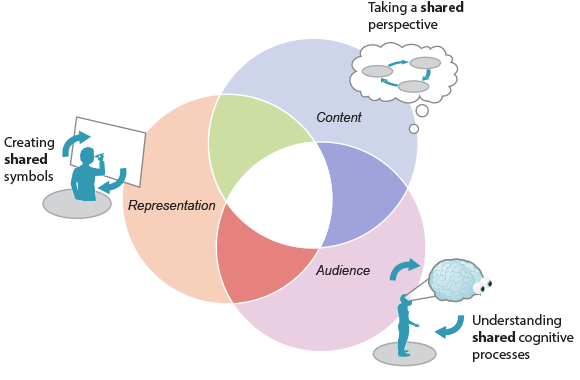
Namecheap offers hosting services. Namecheap will install SSL certificates to ensure your site is protected. You can activate an SSL cert for your domain by clicking the "Activate” button. Two codes must be generated once the certificate is installed. The first is your CSR code. It will vary depending on what hosting panel you choose. You can generate this code using EasyWP's CSR Generator tool.
Domain validation
SSL certificates are available at a low cost if your domain is important. These certificates can protect your website's online transactions with modern 256-bit encryption. You also get a free site seal and a 15-day money back guarantee. You can also get a warranty of up to $500K. Your website's ownership rights will be validated by SSL certificates. Visitors will remain safe when entering their personal information.
To activate an SSL certificate, your company must send you an email address. This email is required because you cannot change it later. However, you can always download the SSL issued to your Namecheap Account.

Extended Validation
Extended Validation (EV), a security feature that online businesses need, is a must. It serves two purposes: it is a way of confirming the legitimacy your business and ensuring that customers can make payments. EV certificates need to be verified, which includes organization checks and applicant verification. To prove your business identity, you must also fill out paperwork.
To receive your certificate, you must provide an official company email address. This information is not refundable. Once issued, the SSL can be downloaded from your Namecheap account. Make sure that you fill in the "Representative” section with your correct email.
When the certificate has expired, you can renew it online. For more information about renewing your SSL, visit Namecheap.com. You can renew the certificate for up 120 days before it expires. The new certificate will carry the remaining days of the current certificate. You should choose a certificate that includes a renewal option in the shopping cart.
Unified Communications
Namecheap is an excellent choice for SSL certificates for your Unified Communications System. Its SSL certificates are issued by Comodo, which is a trusted certificate authority. This guarantees that your users won't encounter any security problems while visiting your website. You can buy these certificates for your Unified Communications system for as little as $9.99/year for up to five years.

The Namecheap SSL system creates a unique identifier for each SSL certificate request. This ensures that each SSL certificate request is from a valid source. It allows you to choose a method for passing DCV though, which is useful when you use a multi-domain SSL cert. DCV only works with Multi-Domain SSL certificates. Wildcard certificates don’t support it.
Multi-Domain SSL Certificates are great for businesses who use Microsoft Exchange or Office Communications servers. These certificates are great for protecting multiple domains or subdomains. These certificates can also be used with UCC and SAN certificates to protect Office Communications infrastructure. A multi-domain SSL certificate can secure upto 100 domains and subdomains. Multi-domain SSL certificates don't require you to assign an IP address for each domain.
FAQ
Can I Use A Template Or Framework On My Website?
Yes! A lot of people use prebuilt templates or frameworks to create websites. These templates include all of the code required to display the information on your webpage.
Some of the most well-known templates are:
WordPress - one of the most popular CMSes
Joomla - another popular open source CMS
Drupal - An enterprise-level solution for large companies
Expression Engine - Yahoo's proprietary CMS
Hundreds of templates are available for each platform, so finding the right one should be easy.
How much do web developers make?
The hourly rate for a website you create yourself is $60-$80. If you are looking to make more money, it is worth considering becoming an independent contractor. A typical hourly rate for a freelancer could be between $150 and $200.
What should I include in my Portfolio?
Your portfolio should consist of all these things:
-
Examples of your previous work.
-
If applicable, links to your website
-
These are links to your blog.
-
These are links to social media sites.
-
These links will take you to the online portfolios of designers.
-
Any awards you have been given.
-
References.
-
You can also send us samples of your work.
-
These links will help you communicate with clients.
-
These are links that show you're open to learning new technologies.
-
Here are some links to show you are flexible.
-
Links that show your personality
-
Videos showing your skills.
What is a static web site?
A static website is possible to be hosted anywhere: Amazon S3, Google Cloud Storage or Windows Azure Blob storage. Rackspace Cloudfiles, Rackspace Cloud Files. Dreamhost and Media Temple. You can also deploy a static website to any platform that supports PHP such as WordPress, Drupal Joomla! Magento PrestaShop and others.
Static websites are typically easier to maintain, as they don’t have to constantly send requests between servers. Static web pages load faster since there are no requests between servers. Static web pages are better for small businesses that don't have enough resources or the time to maintain a website.
Statistics
- In fact, according to Color Matters, a signature color can boost brand recognition by 80%. There's a lot of psychology behind people's perception of color, so it's important to understand how it's used with your industry. (websitebuilderexpert.com)
- It's estimated that in 2022, over 2.14 billion people will purchase goods and services online. (wix.com)
- Studies show that 77% of satisfied customers will recommend your business or service to a friend after having a positive experience. (wix.com)
- The average website user will read about 20% of the text on any given page, so it's crucial to entice them with an appropriate vibe. (websitebuilderexpert.com)
- It enables you to sell your music directly on your website and keep 100% of the profits. (wix.com)
External Links
How To
What is website hosting?
Website hosting is the location where people go when they visit websites. There are two types.
-
Shared hosting – This is the most affordable option. Your website files reside in a server managed by another company. Customers visiting your website send their queries over the Internet, to that server. The request is then handed to the owner of that server.
-
Dedicated hosting: This is the most costly option. Your website resides entirely on one server. You and your traffic are protected by the fact that no other websites share server space.
Most businesses choose shared hosting because it's less expensive than dedicated hosting. Shared hosting allows you to have your website run by the company who owns the server.
There are pros and disadvantages to each option. Here are the main differences between them:
Sharing Hosting Pros
-
Lower Cost
-
It's easy to set up
-
Frequent Updates
-
It can be found at many web hosting providers
You can get shared hosting for as low as $10 per monthly. But keep in mind that this price usually includes bandwidth. Bandwidth is how much data you can transfer to the Internet. Even if you are only uploading photos to your blog site, high data transfer rates can still cost you extra.
You'll soon discover why you paid so much more for your previous host when you get started. Most shared hosts don't offer any customer support. While they may occasionally assist you in setting up your site and other tasks, after that you are all on your own.
Providers that offer 24-hour customer support are worth looking into. They will help you deal with any issues that arise while your sleeping.
Cons of dedicated hosting
-
More Expensive
-
Fewer Common
-
Requires Special Skills
You're getting everything you need with dedicated hosting to operate your website. You won't have to worry about whether you're using enough bandwidth or whether you've got enough RAM (random access memory).
This means that upfront, you'll need to spend a bit more. But once your online business starts, you'll realize you don't need any technical assistance. You'll soon be an expert at managing servers.
Which Is Better For My Business, So Which Is Better?
This depends on the kind of website that you want. If you're selling products only, shared hosting might work best. It's very easy to setup and maintain. You'll probably receive frequent updates because you are sharing a server hosting many other sites.
However, dedicated hosting can be a great option if you're looking to build a community around the brand. You can focus on building your brand without worrying about handling your traffic.
Bluehost.com has both. Bluehost.com offers unlimited monthly data transfers, 24/7 customer support, domain registrations free of charge, and a 30-day guarantee for your money back.